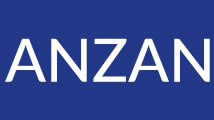Advanced Training
Supervising Committee
Neurology encompasses the science, investigation and treatment of all inherited and acquired diseases affecting the nervous and neuromuscular systems.
General Overview of Training
The advanced training program in Neurology comprises two years spent in accredited core training posts and one year spent in an approved non-core training post. Core training should be completed at more than one accredited core training site and, unless there are exceptional circumstances, training all at one site will not be approved.
Non-core training
It is strongly recommended that trainees complete core training prior to non-core training, so as to maximize the benefits of the elective training experience. Non-core training may include research (clinical or basic science), and/or clinical work in another specialty (providing there is suitable neurology experience) or subspecialty within neurology. There are no set requirements for the elective year. Currently approved non-core posts offer additional general neurology exposure (e.g. the ANZAN overseas training posts in the UK and USA) or sub-specialty clinical training in neurophysiology, stroke, epilepsy, movement disorders etc. Neurosciences research, e.g. as part of a PhD program is also suitable as non-core training.
Flexible training
Part-time training is supported by ANZAN, however proposed part-time arrangements need to be negotiated with the host institution(s) directly. Applicants wishing to pursue part-time training should contact the ANZAN Secretariat. Please refer to the RACP Flexible Training Policy on the RACP Education Policy webpage for detailed information about part time training and interruptions to training.
Components of Neurology training
Neurology training will include management of inpatients, outpatients, on-call emergency neurology and exposure to neuropathology, neuroimaging and neurophysiology. The components of the Neurology training program and all requirements for training, including the mandatory neurophysiology requirements, are detailed in the Neurology handbook and on the Neurology training page on the RACP website and can be accessed HERE.
Applications for Approval of Training in Neurology
Applications for Approval of Training in Neurology training posts need to be submitted to the RACP, prior to the published deadline for submission of applications. Information about this process and the closing dates for applications can be found on the RACP Neurology web page. Trainees are required to have two supervisors for both core and non-core training periods and will also have a supervisor for neurophysiology training and for the mandatory research project. Retrospective approval of training is only considered via the Recognition of Prior Learning (RPL) application process. Information about RPL is found at https://www.racp.edu.au/trainees/education-policies-and-governance/education-policy
Neurology training posts
Training posts for core training in Neurology are accredited by ANZAN and meet minimum standards for staffing, infrastructure, clinical workload and trainee support. Some core-training posts provide components of training in partnership with other sites, e.g. to facilitate exposure to neuropathology, neuroradiology or sub-specialty clinics. Non-core training posts are approved by the Advanced Training Committee in Neurology. Applicants should confirm with the ANZAN Secretariat whether a post is an approved core or non-core training post. There are opportunities to obtain experience in a rural or regional centre during Neurology training. Applicants are invited to contact the ANZAN Secretariat or Chair of the ATC to discuss possible opportunities for this experience.
Further Information
Special Society
Australian & New Zealand Association of Neurologists (ANZAN).
For information regarding the registration with the association, please contact:
The Secretariat
Australian & New Zealand Association of Neurologists
145 Macquarie Street
SYDNEY NSW 2000
Tel: 02 9256 5443
Fax: 02 9241 4083
E-mail: anzan@anzan.org.au

